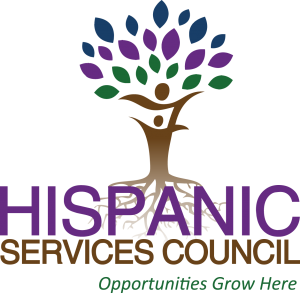Achieving Equity and Excellence in Education
Established in 1992, Hispanic Services Council’s (HSC) mission is to increase access to opportunities for Latinos and influence the systems that serve them. Our work focuses on developing opportunities that result in an educated, healthy, prosperous, and engaged Latino community. 
Understanding the U.S. school system is one of the biggest challenges Latino parents face. For that reason, one of our areas of focus is education, with an emphasis on closing the divide between school and home. We do this through La RED de Padres Activos, or the Network of Active Parents, which engages and educates parents to become more involved in their children’s academic lives, better preparing Latino children for success in school.
La RED targets five areas in Hillsborough County, FL (Drew Park, Palmetto Beach/Palm River, North Tampa, Plant City, and Wimauma). The network partners with community- and faith-based organizations to establish and strengthen relationships with parents, create networks of mutual support, gain new parenting skills, and build their confidence to advocate for their children’s academic success.
HSC partners with NCLR to increase educational opportunities and improve achievement for Latinos by amplifying the voice of Latino parents. HSC has been implementing NCLR’s Padres Comprometidos program since La RED began four years ago.
In September 2015, HSC began to implement another NCLR project, Equity and Excellence, to enhance the work we were already doing to increase parental engagement. Through the Equity and Excellence initiative, we incorporated the topic of academic standards into our curriculum, which is a topic that usually only school staff and administrators deal with. However, NCLR’s initiative allowed us to disseminate this information to our parents in a simple and practical way.
Knowing our communities and the cultural characteristics of each, we modified the session content and length so we could be sure that parents would better understand how academic standards affect their children. Such modifications were necessary to meet each community’s diverse education level, cultural experiences, and language, as some of our families are learning Spanish because they speak an indigenous language or dialect.
